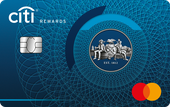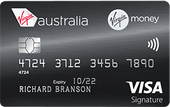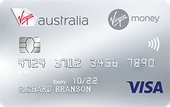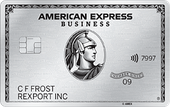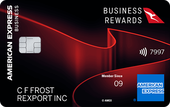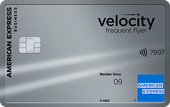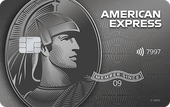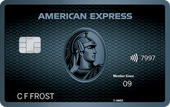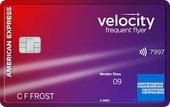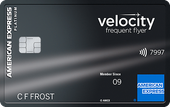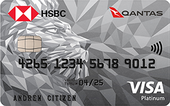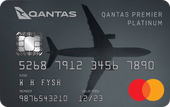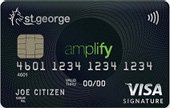
Earn points or miles.
What is a frequent flyer credit card?
Frequent flyer credit cards offer reward points or miles for every dollar spent on eligible purchases. These frequent flyer reward points can be redeemed for flights, hotel stays, car rentals, and other travel-related expenses. Frequent flyer credit cards are popular among avid travellers and those looking to make the most of their everyday spending by earning valuable rewards that can offset travel costs.

Spend and earn points.
How do frequent flyer credit cards work?
Frequent flyer credit cards are like any other rewards-based credit cards, allowing you to earn points on your eligible everyday spending. However, these cards are often linked to airline programs such as Qantas and Velocity, enabling you to transfer your rewards points to your frequent flyer account for free tickets, upgrades, and other travel-related perks or discounts.
Some frequent flyer credit cards may also offer additional benefits like complimentary travel insurance and lounge access. However, they often come with higher annual fees and interest rates. You may find some frequent flyer credit cards offering bonus points on joining, which can be enough for a free flight. But make sure to check the attached conditions, such as any minimum spending requirements for redemption, to ensure you can benefit from the points.
In general, a frequent flyer card could make your travels cheaper and perhaps even make you feel like a VIP, depending on your card. But nothing comes for free in the world of credit, and it’s important to check the associated fees, charges, and conditions to make sure you pick the right card for your budget and lifestyle.

Frequent flyer expert explains the benefits

Steve Hui, the 'points whisperer' and the founder of iFLYflat, tells us how he explains the benefits of frequent flyer credit cards to beginners.
The real magic of a frequent-flyer credit card is its ability to turn money you are spending anyway into expensive flights/trips you’d shy away from paying for.
The biggest benefit isn’t the free food in the lounge—it’s unlocking Business (and sometimes First) Class flights for a fraction of the cash fare, and knowing you got that ticket for next to nothing – basically like you scored the best discount of your life.

The biggest frequent flyer programs in Australia ranked
- Qantas Frequent Flyer. Linked to Australia's flag carrier airline, Qantas. Earn Qantas Points through flights, credit card spending, and various partners. Redeem points for flights, upgrades, hotels, and other rewards.
- Virgin Australia Velocity. Associated with Virgin Australia airline. Earn Velocity Points through flights, credit card spending, and partners. Redeem points for flights, upgrades, hotels, and experiences.
- Amex Membership Rewards. AmEx has the largest range of credit and charge cards in Australia, with all cards earning loyalty points.
- Singapore Airlines KrisFlyer. Frequent flyer program of Singapore Airlines, which operates extensively in Australia. Earn KrisFlyer miles through flights, credit card spending, and partners. Redeem miles for flights, upgrades, and other rewards.
- Cathay Pacific Asia Miles. Frequent flyer program of Cathay Pacific, which serves several Australian cities. Earn Asia Miles through flights, credit card spending, and partners. Redeem miles for flights, upgrades, hotels, and experiences.
- Emirates Skywards. Loyalty program of Emirates, which has a significant presence in Australia. Earn Skywards Miles through flights, credit card spending, and partners. Redeem miles for flights, upgrades, hotels, and other rewards.
- Etihad Guest. Frequent flyer program of Etihad Airways, which serves several Australian cities. Earn Etihad Guest Miles through flights, credit card spending, and partners. Redeem miles for flights, upgrades, hotels, and experiences.
- Air New Zealand Airpoints. Loyalty program of Air New Zealand, which has a strong presence in the Australia-New Zealand market. Earn Airpoints Dollars through flights, credit card spending, and partners. Redeem Airpoints Dollars for flights, upgrades, and other rewards.

What can you redeem your frequent flyer points for?
Frequent flyer points can be redeemed for a variety of rewards, typically focused on travel. One of the most popular options is redeeming points for free flights, either domestically or internationally, depending on the number of points you have accumulated. You can also use points to upgrade your seat to a higher class, making your travel experience more comfortable.
In addition to flights, many airline programs allow you to use your frequent flyer points for booking hotel stays, car rentals, and travel packages. Many airline programs also have partnerships with retail stores and online shopping portals, allowing you to use your points for purchasing a wide range of products, from electronics to fashion items. However, using your frequent flyer points for flights or upgrades often provides the maximum benefit, though this can depend on your card and the specific conditions around redemption.
It's important to check the terms and conditions of your frequent flyer program to understand the best ways to maximise your points and ensure you're getting the most value from them.

Expert opinion on using the best frequent flyer credit card

David Boyd, the co-founder of Credit Card Compare, has years of experience earning frequent flyer points with credit cards and redeeming them, mostly for flights:
I fondly remember the first time I used points from my American Express frequent flyer credit card. It allowed me to upgrade my flight to first class — a luxury I wouldn't have experienced otherwise.
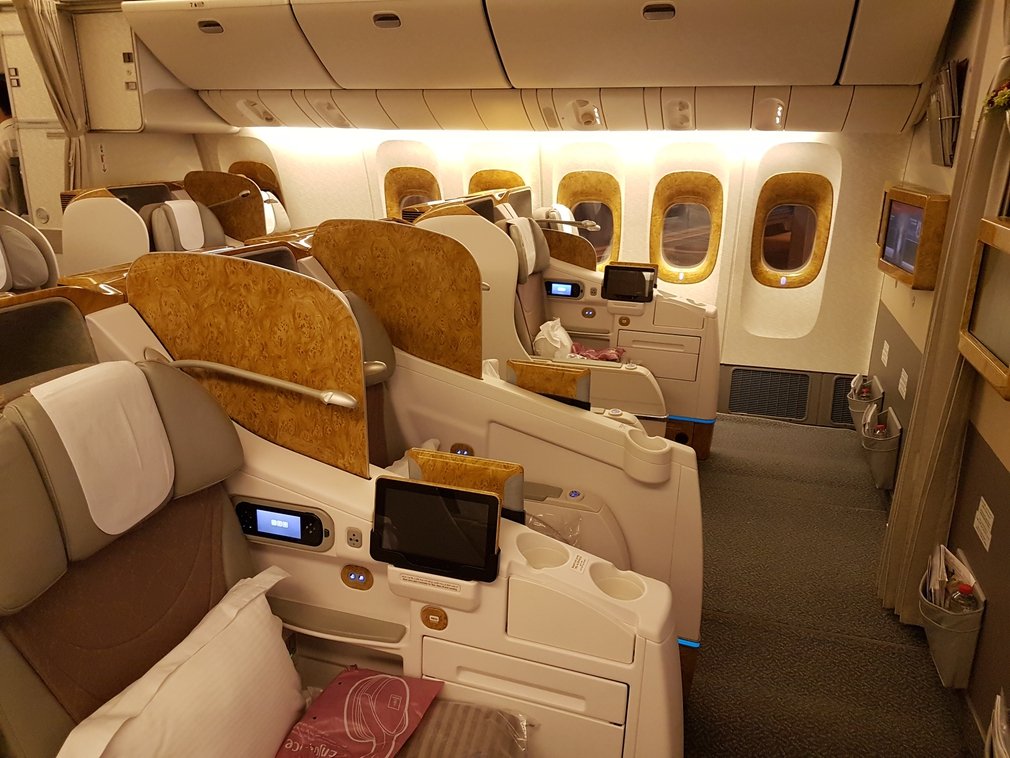
Emirates Business Class
Image Credit: CreditCardCompare.com.au

Benefits of frequent flyer credit cards
Frequent flyer credit cards offer a range of benefits that make them appealing to consumers. Some of the key benefits include:
- Earn points. Cardholders can earn points or miles for every dollar spent on eligible purchases, which can be redeemed for flights and other travel-related expenses.
- Sign up bonuses. Many frequent flyer credit cards offer generous sign-up bonuses, providing a significant number of bonus points when you first open the card and meet the minimum spending requirement.
- Travel perks. Cardholders often enjoy travel perks such as airport lounge access, free travel insurance, and priority boarding.
- Foreign transaction fee waiver. Some frequent flyer credit cards waive foreign transaction fees, making them ideal for international travel.
- Additional rewards. In addition to travel rewards, some cards offer additional perks such as cashback, statement credits, Priority Pass, or discounts on partner merchants.
Most frequent flyer credit cards are designed to benefit those who travel regularly. However, the number and level of benefits associated with each card can vary. It's important to remember that the additional perks on these credit cards often come with high fees and other conditions. Make sure you review all the terms and understand the actual value of the reward points to get the maximum benefit.

Onboard Singapore Airlines first class using only 80k points.
Image Credit: CreditCardCompare.com.au

How to choose the best frequent flyer credit card that suits you
With many frequent flyer credit cards available in the market, selecting the right one can be a daunting task. Here are some factors to consider when choosing the best frequent flyer credit card for your needs:

How do you apply for a frequent flyer credit card?
It’s generally possible to apply for a credit card online, at a bank branch, or over the phone. However, it’s advisable to research various cards to find one that suits your requirements before applying. Also, check the eligibility criteria of the card and ensure you meet them to increase the likelihood of your application getting approved.
1. Research and compare credit cards
Start by researching different frequent flyer credit cards. Compare their rewards programs, annual fees, interest rates, and additional perks. Make sure the card aligns with your travel habits and financial needs.
2. Check eligibility requirements
Review the eligibility criteria for each card, including minimum annual income and credit score requirements.
3. Gather necessary documentation
Prepare the necessary documentation for your application. This typically includes:
4. Complete and submit the application
Once you’ve chosen a card, complete the application form, which can usually be done online through the card issuer’s website. Provide personal information, financial details, and information about your employment and income. Double-check all the information for accuracy before submitting.
5. Wait for approval
After submission, wait for the card issuer to review your application. The issuer will verify your information and carry out a credit check to ascertain your creditworthiness.
Note that a credit check by a provider is recorded on your credit report. It’s advisable to compare credit cards carefully and apply for the one that suits you best, rather than making multiple applications at once. Too many hard inquiries in a short period can give the impression of financial hard Too many hard inquiries in a short period can give the impression of financial hardship. This might lead providers to think you’re seeking more credit than you may be able to repay.
6. Activate your card
If your application is approved, you’ll receive your card in the mail. Follow the instructions provided to activate your card before you can start using it. Remember to use your card judiciously and try to repay your credit card bill on time and in full each month to avoid falling into a debt trap.

Credit Card Compare expert explains the biggest benefit of frequent flyer points

Andrew Boyd, the co-founder of Credit Card Compare, has earned and redeemed hundreds of thousands of frequent flyer points:
One of the biggest benefits of earning frequent flyer points is the sense of freedom, but you also need to either plan ahead or be prepared to be flexible when it comes to booking a seat.

Is it worth getting a frequent flyer credit card?
Depending on your lifestyle and the card you choose, a frequent flyer credit card may be a good choice for you, especially if you travel often. However, these cards often come with higher fees, so it’s essential to ensure the benefits align with your needs and travel habits.
To get good value from a frequent flyer credit card, you need to find the best credit card for your specific situation and fully utilise the perks offered. Consider your spending and travel habits.
If you use your card regularly and spend enough to accumulate points, and if you travel frequently, enjoying perks like seat upgrades and free flights, a frequent flyer card can be very beneficial. However, if you only need a credit card for emergencies, a frequent flyer card may not be the right choice, as you might not accumulate enough points to make the higher fees worthwhile.
Estimate how much you’re likely to spend in a year. This will help you determine how many points you can earn and whether the rewards justify the card’s fees. It’s also worth checking if the points can be used for rewards that you find valuable, such as flights, upgrades, hotel stays, or other travel-related perks. Additionally, consider any associated fees or conditions that might affect your ability to use the points.
As frequent flyer credit cards often come with higher annual fees and possibly other costs, it could help to weigh these against the potential benefits. This can help you determine whether the card offers good value for your situation.
